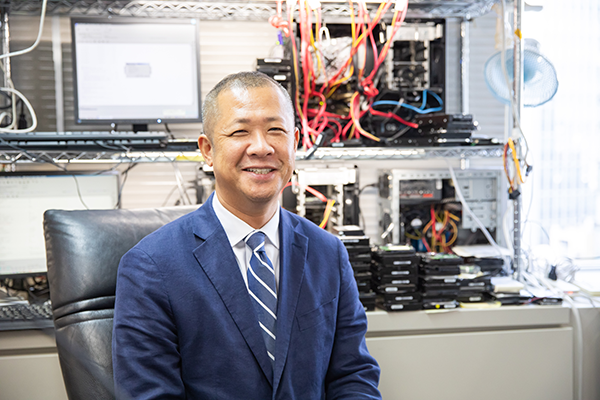ACELab PC-3000 Expert Data Recovery Training (HDD + SSD)
ACE Lab PC-3000 Expert Data Recovery Training (HDD + SSD) combines four days of HDD recovery with one day of SSD recovery. Through hands-on practice with PC-3000 tools, participants learn to diagnose hardware and software issues, recover data from damaged drives, and address challenges like service area failures, translator repair, encryption, and controller-level problems building the skills to handle both HDD and SSD cases with confidence.
Description
The ACE Lab PC-3000 Expert Data Recovery Training (HDD + SSD) gives students, through hands-on practice, the ability to diagnose faults, recover data from damaged drives, and handle challenges from hardware failures to encryption, gaining the skills to manage both HDD and SSD cases effectively.
This intensive 5-day training program combines two flagship courses from ACE Lab and Teel Technologies:
-
4-Day HDD Data Recovery Training – Covers the fundamental principles of hard disk recovery, from hardware failures to microprogram repair and translator recovery.
-
1-Day SSD Data Recovery Training – Focuses on solid-state drive recovery using PC-3000 SSD utilities and technological modes, enabling recovery without unsoldering memory chips.
Participants gain comprehensive knowledge across HDD and SSD technologies, preparing them to tackle a wide range of modern data recovery cases with confidence.
You Will Be Able To:
-
Diagnose and repair common HDD and SSD hardware faults
-
Recover data from damaged or encrypted drives using PC-3000 tools
-
Work with service area modules, translators, and microprogram structures
-
Apply advanced recovery techniques like HOT-SWAP and MR-Head Shift
-
Confidently manage modern HDD and SSD recovery cases from start to finish
Who Should Attend:
-
Digital forensic professionals handling storage media in investigations
-
Data recovery engineers and technicians seeking advanced PC-3000 training
-
IT and cybersecurity specialists responsible for safeguarding critical data
-
Lab managers and technical leads aiming to expand recovery capabilities
-
Anyone looking to develop hands-on expertise in both HDD and SSD recovery
Course Itinerary
HDD Training (Days 1–4)
-
Hardware Solutions
-
Organizing recovery with PC-3000 EXPRESS/UDMA
-
Identifying HDD families and avoiding common mistakes
-
Serial port & adapter usage; connecting USB drives
-
Diagnostics of HDD hardware (HDA, PCB, Spindle, Heads, Platters)
-
Hands-on practice with donor adaptation and fault isolation
-
-
Software Solutions
-
HDD microprogram: ROM structure, service area, modules
-
Startup diagnostics (0 capacity, BIOS detection issues, etc.)
-
Translator recovery and MR-Head Shift Technology
-
Case studies on Data Extractor for damaged file systems
-
-
Boosting Recovery Skills
-
HOT-SWAP methods and donor matching
-
Recovering data from encrypted USB HDDs
-
Advanced use of Data Extractor in complex cases
-
SSD Training (Day 5)
-
Introduction to SSD Recovery
-
Characteristics of SSD storage and architecture
-
Software/hardware implementation of SSD systems
-
Primary diagnosis of SSD failures
-
-
PC-3000 SSD Utilities
-
Technological mode for recovery without chip unsoldering
-
Handling controller encryption and data mixing
-
Utilities for leading SSD families (Indilinx, Intel, JMicron/Toshiba, Samsung, Seagate, OCZ, etc.)
-
-
Hands-On Practice
-
Work with real damaged SSDs
-
Guided recovery using multiple utilities
-
Developing confidence with modern SSD recovery techniques
-
Included with Training
-
Official ACE Lab Data Recovery Certification (HDD + SSD)
-
Practical handouts and reference materials
-
Dedicated practice drives for hands-on exercises
Laptop Requirements
-
Windows PC with two (2) USB A ports.
-
Windows OS
-
macOS with Bootcamp Windows
-
macOS alone will not work (No Virtual Machines)
-
8GB RAM (minimum)
-
100GB storage (minimum)
-
You must have admin rights or have the admin password for software installation.
-
NOTE: ALL Windows updates should be done prior to class.
Prerequisites
-
Basic understanding of computer hardware and storage devices
-
Familiarity with Windows-based software environments
-
Prior experience in digital forensics or data recovery is helpful but not required
-
No prior PC-3000 experience necessary - fundamentals are covered in class
Meet The Instructor

Dai Shimogaito is the founder and CEO of AIFORENSE JAPAN DATA RECOVERY, INC., established in 1998. He is a distinguished expert in advanced data recovery and digital forensics, leading both corporate and criminal investigations. He holds Japan's premier qualification for forensic examiners, the Certified Digital Forensics Professional–Practitioner (CDFP-P), and applies his expertise across a wide spectrum of cases—from civil matters such as data loss, internal fraud, and information leaks, to criminal cases including murder, financial fraud, and tax evasion.
Learn More